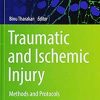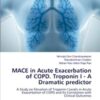Cardiac Injury in COVID-19
link.springer.comPatients with coronavirus disease 2019 (COVID-19) can present with a large panel of cardiac manifestations, including myocardial infarction with (type 1) or without (type 2) obstructive coronary artery disease, arterial or venous thromboembolic disease, pericarditis and myocarditis, arrhythmias, acute heart failure, shock or cardiac arrest.
The most frequent cardiac abnormality reported in COVID-19 is acute cardiac injury (ACI), defined by cardiac troponin elevation > 99th percentile. ACI occurred in as many as 50% and 21% of critically ill and hospitalized COVID-19 patients, respectively, rates which were higher than in severe diseases caused by other respiratory viruses.
COVID-19 patients with ACI were older (median age 70 years), had increased markers of systemic inflammation, more frequent malignant arrhythmias, shock and need for intensive care unit (ICU) care and higher mortality rates [4], with myocardial injury being the second cause of death after respiratory failure.
Furthermore, compared to a pre-COVID-19 population, COVID-19 patients with type 1 myocardial infarction had prolonged symptom-to-admission times, more frequent cardiogenic shock and higher mortality.
It should also be emphasized that COVID-19 patients had frequent cardiovascular comorbidities such as hypertension, obesity, metabolic syndrome and pre-existing coronary artery disease that may have precipitated cardiac complications

















